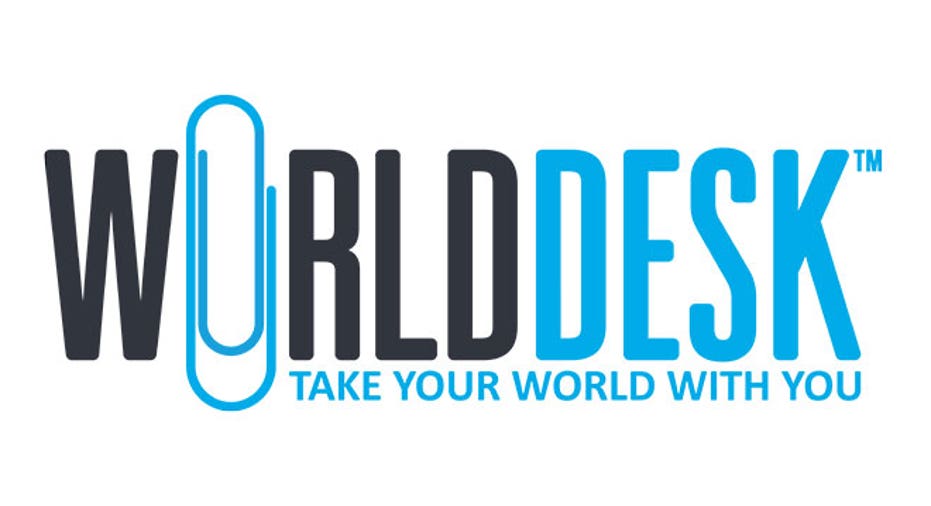Want to Access Your Windows Desktop Anywhere? WorldDesk Says It Has The Answer

With Windows 8, Microsoft is introducing more portable, cloud compatibility in the form of Windows To Go, but what about those seeking a solution today that works on devices running Windows 7? WorldDesk claims to have an answer.
The Northern Irish-founded, now Menlo Park-based company has launched a new virtualization platform that it says allows all Windows 7 users to carry their desktops around on any device, including some of the the smallest portable devices of all, like a USB drive, a smartphone and an iPod. Written as a 64-bit platform, WorldDesk can also work via the cloud through a Dropbox integration it first announced in February at the release of a 32-bit version of the platform.
There are, of course, other online desktop vendors, like OnLive and CloudOn, offering similar solutions. The issue with these that WorldDesk is addressing, says its CEO Rao Cherukuri, is that competitors remain expensive and deliver poor user experience; they also do not offer mobile and offline storage.
The other main difference with similar virtualization services is that WorldDesk does all the processing on the end device: that means it can be used for processor-intensive programs like Photoshop, AutoCAD and HD Video. It delivers “the same flexibility and experience on par with local PC,” says Cherukuri.
The significance of extending the platform to 64-bit from 32-bit is that it gives WorldDesk a much wider target audience. Currently, Windows 7 accounts for one-third of the worldwide OS market share, with over half of PCs running it in 64-bit mode for higher memory and performance capabilities.
Given that the shift to Windows 8 will be gradual, WorldDesk is targeting legacy users of Windows 7, and Windows XP first. But it is also making a Windows 8 version, and has internal demos of Android also underway, so that when users do make the move to another platform, they will take their WorldDesk desktops with them.
The company has yet to release user numbers but says that they are a “healthy mix” of end-user and enterprise customers throughout the Americas, EMEA and Asia-Pacific. Because WorldDesk runs natively on the end device the service does not have any issues with corporate firewalls, but also has an enterprise-specific solution should an issue arise.
There is also the issue of whether the move to cloud services may ultimately invalidate solutions like WorldDesk’s. Cherukuri notes that current cloud services still lack the processing power for intensive programs (like Photoshop or AutoCAD), and besides, “Desktops have proven to be very sticky.”
This content was originally published on Tech Crunch.




















